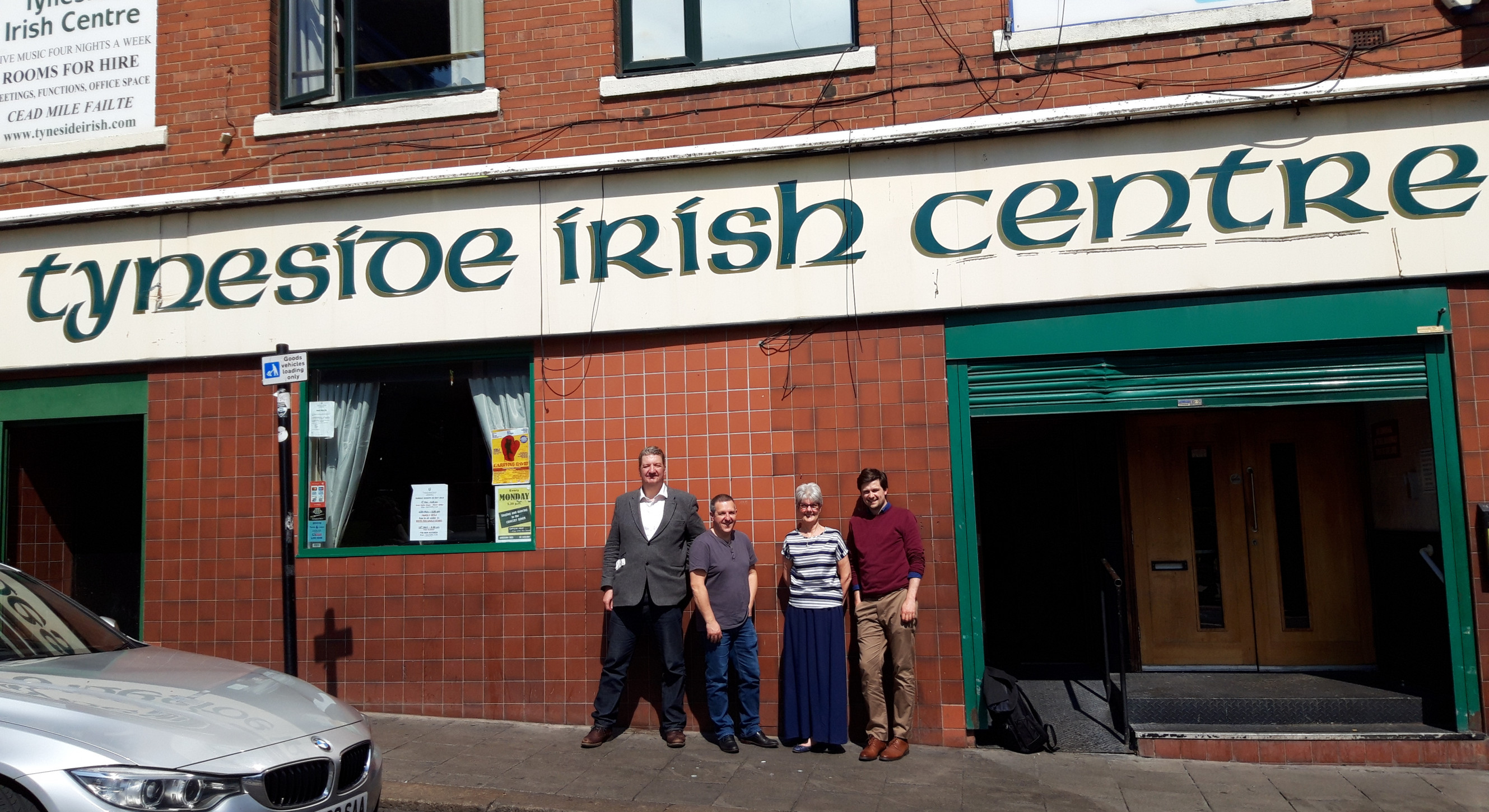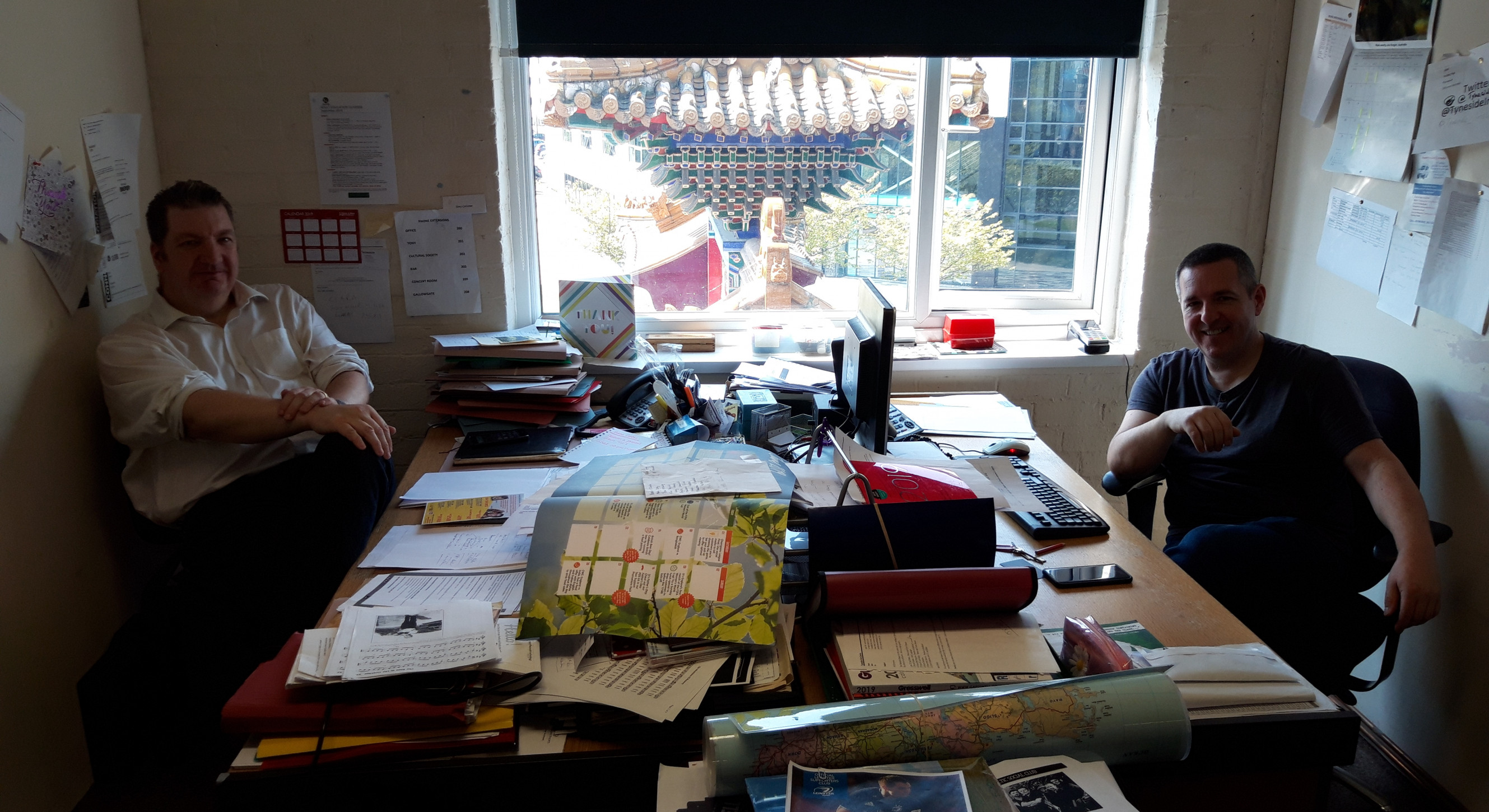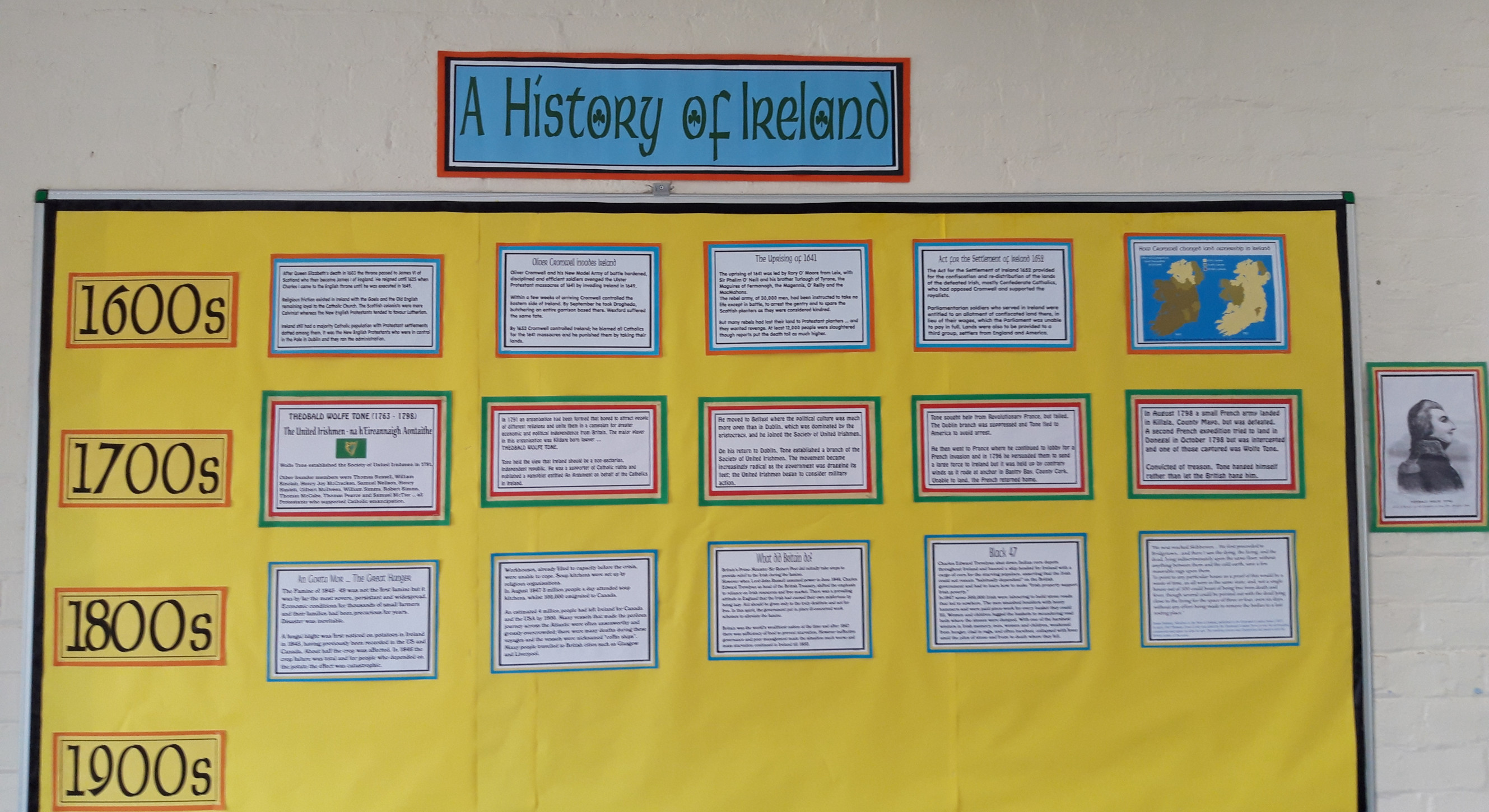by Ruairí Cullen, Irish in Britain Policy Officer
I spent a few hours on 14 May in Newcastle–upon–Tyne with Bill Corcoran, a third–generation Irish–Geordie and son of community stalwart Tony Corcoran, who is secretary of the Tyneside Irish Cultural Society. It was a privilege to find out about the long and proud history of Newcastle’s Irish community from Bill and the activities organised by the Tyneside Irish Centre and Cultural Society. I was very grateful that Bill and some of the Centre’s staff took the time out to talk to me and show me around, as they were recovering from a busy few days.
Thousands of Leinster Rugby fans had just spent an entertaining, if ultimately disappointing for their team, weekend in the city to attend the Heineken Champions Cup Final at St James’s Park on Saturday. There were still Leinster flags in the Centre and a few rugby balls dotted around.
Walking through the city centre and around the Irish Centre, Bill told me how the Newcastle Irish community has historically enjoyed very good inter–community relations. From helping to build of the famous High Level Bridge in the 1840s to service and tragedy at the Somme in the Tyneside Irish Brigade in 1916, the Irish community’s contribution to Newcastle life was all around us.
Today, local universities Newcastle and Northumbria attract hundreds of students from Northern Ireland and the Republic every year and many remain in the city after graduation. In recent years, GAA games have been revitalised in the area in the form of clubs such as Cú Chulainn and Tír na nÓg.
Newcastle has also, in turn, had some significant influence on Irish life. Early meetings of the Home Rule Association were held in the city in the 1870s and Tim Healy, later an MP and the first Governor General of the Irish Free State, worked there in this period as a railway clerk. Perhaps the greatest contribution, though not without some controversy, is the debate over the origin of the word ‘craic’. Geordies claim that it originates from the local expression ‘crack’, as in ‘what’s the crack?’, and is erroneously now seen as a Hibernicism. Irish in Britain does not take a position on this debate!
The Irish Centre has been at its current site since the 1980s and is a well–known fixture in the city, sitting as it does a stone’s throw from Newcastle United’s St James’s Park. The bar fills up on match days and often sells out for gigs. The up–and–coming Breton band Celtic Social Club played to a full house last week. The Centre also supports the Newcastle United Fans Foodbank, which supports at least 1,000 people every week.
The Irish Centre hosts the Tyneside Irish Cultural Society which organises an impressive array of activities and classes. The Society book bands to play the Centre and offer Irish language classes and historical lectures. You can see what’s going by following on Facebook.
After St Patrick’s Day, the standout date in calendar is the week–long Tyneside Irish Festival in October, which will celebrate its 33rd consecutive edition this year.
The Cultural Society also runs the outreach project Raised on Songs and Stories (ROSS). ROSS is a special project for older Irish people which goes out to Irish communities in the region and puts on a lunch with live Irish music and entertainment. The audience are encouraged to sing and share their stories. It is supported by the DFA’s Emigrant Support Programme, the National Lottery, the Arts Council England and the Ireland Funds. While I was there, Paul Hetherington, who coordinates ROSS with his colleague Barbara Flynn, was busy planning for a session the next day in Consett, Co. Durham.
I also had the opportunity speak to Tony Corcoran, who has been involved with the Irish community in Newcastle since the 1960s. He told me that the community is “at a crossroads” as its profile shifts from an older population who came over in the 1960s and 70s, to a younger one, often professionals, who have arrived since the millennium. The challenge for the Irish community in Britain is to engage with this changing diaspora and support existing clubs and centres.
So, the craic (or is it crack?) is still mighty on Tyneside and I left with a great sense of the accomplishments of the Irish in Newcastle and the north east. I was also given much to mull over about the future of the Irish community in Britain – we have so much to celebrate but we must ensure that our clubs, societies and centres are prepared to tackle the challenges ahead.


